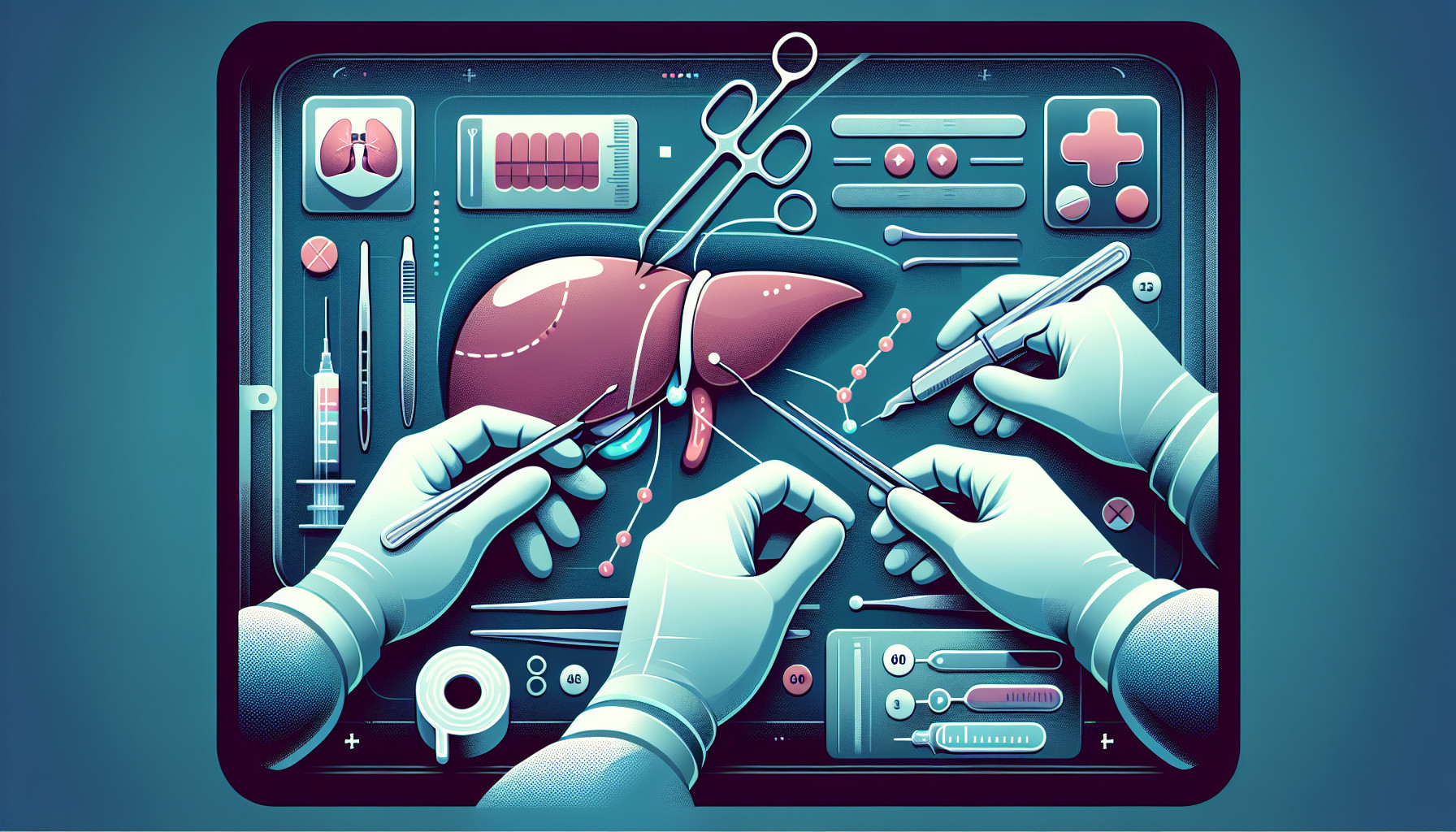Our Summary
This research paper doesn’t provide an abstract for a detailed summary. However, from the keywords, we can infer that the study is about the impact of exercise on Non-alcoholic fatty liver disease and the use of non-invasive tests related to this issue. Non-alcoholic fatty liver disease is a common condition where fat builds up in the liver of people who drink little or no alcohol, potentially leading to serious liver damage. The research likely explores how physical activity can help manage or reduce the effects of this disease, and how non-invasive tests can help diagnose or monitor it.
FAQs
- What is a non-invasive test for non-alcoholic fatty liver disease?
- How does exercise impact non-alcoholic fatty liver disease?
- What is the relationship between a liver biopsy and non-alcoholic fatty liver disease?
Doctor’s Tip
One helpful tip a doctor might give a patient about liver biopsy is to avoid taking any blood-thinning medications or supplements for a certain period of time before the procedure to reduce the risk of bleeding. It is important to follow all pre-procedure instructions provided by your healthcare provider to ensure a safe and successful biopsy.
Suitable For
Liver biopsy is typically recommended for patients with the following conditions:
Liver disease of unknown cause: If a patient has abnormal liver function tests and the cause is unclear, a liver biopsy may be recommended to diagnose the underlying condition.
Liver inflammation or fibrosis: Liver biopsy may be recommended for patients with chronic hepatitis, autoimmune liver disease, or other conditions that cause inflammation or scarring of the liver.
Monitoring liver disease progression: In some cases, liver biopsy may be recommended to monitor the progression of liver disease and assess the effectiveness of treatment.
Suspected liver cancer: If a patient has a suspected liver tumor or cancer, a liver biopsy may be recommended to confirm the diagnosis.
Assessment of liver transplant eligibility: Patients who are being evaluated for a liver transplant may undergo a liver biopsy to assess the extent of liver damage and determine if they are eligible for transplantation.
It is important to note that liver biopsy is an invasive procedure and carries some risks, so it is typically recommended when non-invasive tests are inconclusive or additional information is needed for diagnosis and treatment planning.
Timeline
Before liver biopsy:
- The patient will meet with their healthcare provider to discuss the need for a liver biopsy and the risks and benefits of the procedure.
- The patient may undergo blood tests, imaging studies, and other diagnostic tests to evaluate their liver function and determine the need for a biopsy.
- The patient may need to stop taking certain medications or supplements before the procedure.
- The patient will be instructed to fast for a certain amount of time before the biopsy.
- The healthcare provider will explain the procedure to the patient and answer any questions they may have.
After liver biopsy:
- The patient will be monitored for a few hours after the procedure to check for any complications.
- The patient may experience some pain or discomfort at the biopsy site, which can be managed with over-the-counter pain medication.
- The patient will be instructed to avoid strenuous activities and heavy lifting for a few days after the biopsy.
- The patient may experience some mild side effects, such as fatigue or nausea, in the days following the procedure.
- The patient will follow up with their healthcare provider to discuss the results of the biopsy and develop a treatment plan if needed.
What to Ask Your Doctor
- Why do I need a liver biopsy?
- What are the potential risks and complications of a liver biopsy?
- How will the procedure be performed?
- Will I need to make any special preparations before the biopsy?
- How long will it take to get the results of the biopsy?
- What will the biopsy results tell us about my liver health?
- What are the potential treatment options based on the biopsy results?
- How frequently will I need to have liver biopsies in the future?
- Are there alternative tests or procedures that could provide similar information without the need for a biopsy?
- How can I best prepare for the procedure and recovery period?
Reference
Authors: Jin YJ. Journal: Clin Mol Hepatol. 2023 Apr;29(2):414-416. doi: 10.3350/cmh.2023.0055. Epub 2023 Feb 28. PMID: 36858458
